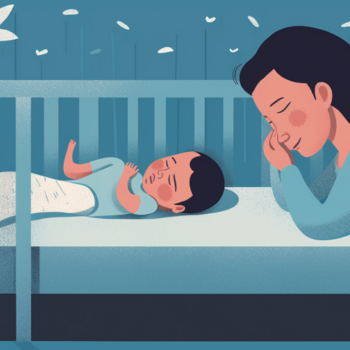Night weaning is a common practice among parents, but many wonder if it can cause harm to their baby. The truth is that when done gradually and with care, night weaning can be a positive experience for both the baby and the parents. It allows the baby to learn to self-soothe and develop healthy sleep patterns. However, sudden and abrupt night weaning can be distressing for the baby and may disrupt their sleep. It is important to follow a gentle approach, ensuring the baby's needs are still met during the night. Consulting with a pediatrician or a sleep specialist can provide guidance on the best way to night wean without causing harm to your baby.
Tag: baby sleep regression
Night Weaning: A Step-by-Step Guide for Parents of Infants
Night weaning a baby can be a challenging task for parents, but it's an important step in promoting healthy sleep habits and reducing dependency on breastfeeding or bottle feeding during the night. There are several methods for night weaning, including gradual reduction of feedings, extending the time between feedings, and implementing comfort measures to soothe your baby without feeding. It's important to approach night weaning with patience and consistency, and to be prepared for some tears and resistance from your little one. With time and dedication, you can successfully night wean your baby and promote healthy sleep patterns for the whole family.
Understanding the Symptoms and Indicators of Sleep Regression in Infants and Toddlers
If you're a parent, you know how important it is for your little one to get enough sleep. However, sometimes they go through a phase where their sleep patterns are disrupted and they wake up more frequently at night. This is known as sleep regression. It can be a frustrating time for both you and your child. But, by knowing the signs of sleep regression, you can be better prepared to handle it. In this blog post, we'll explore the common signs of sleep regression and offer tips on how to manage it. Whether you're dealing with a baby or a toddler, this information will be valuable in helping you understand and navigate through sleep regression.
The Ultimate Guide to Sleep Regression: Duration and Effective Solutions
Sleep regression is a common phase that babies go through, causing disruptions to their sleep patterns. Many parents wonder how long it lasts and what they can do to help their little ones through it. The truth is that sleep regression can last anywhere from a few days to several weeks, depending on the individual baby and the severity of the regression. While there is no way to completely avoid sleep regression, there are tactics that parents can employ to make it more manageable. These include maintaining a consistent bedtime routine, minimizing stimulation before bed, and being patient and understanding during this challenging time. By following these tips, parents can help their babies get through sleep regression as smoothly as possible.
Understanding Sleep Regression: Causes, Symptoms, and Solutions
Sleep regression is a common phenomenon experienced by babies and toddlers. It refers to a period when a child who was previously sleeping well suddenly starts waking up frequently during the night and/or resisting sleep at bedtime. Though it can be frustrating for parents, sleep regression is a normal part of a child's development. It's often triggered by a growth spurt, developmental leap, illness, or changes in routine. Understanding sleep regression can help parents navigate this phase and make adjustments to their child's sleep habits. By being patient and consistent, parents can help their child get back on track with healthy sleep patterns.
When to Begin Sleep Training for Your Baby: Expert Tips and Guidelines
Are you a new parent wondering when to start sleep training your little one? The answer may vary depending on your baby's age and development, but most experts recommend starting between 4 and 6 months. At this age, babies have established a regular sleep pattern and are able to self-soothe. By implementing a consistent bedtime routine and gradually teaching your baby to fall asleep on their own, you can help them develop healthy sleep habits that will benefit them for years to come. Don't wait too long to start sleep training, as the longer you wait, the harder it may be for your baby to adjust to a new routine.

